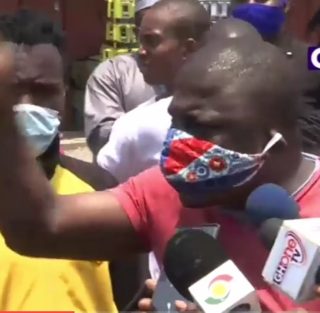Kidnappers in the West African country once targeted people with money or power. But increasingly, they are abducting people with neither — like schoolchildren.
DAKAR, Senegal — Dozens of Nigerian schoolchildren were kidnapped by gunmen early on Wednesday morning, becoming the latest victims of the West African country’s slide into insecurity.
Armed men wearing military uniforms abducted at least 40 people, most of them students, from a boarding school in the town of Kagara, in Niger state in the country’s northwest. They shot one student dead.
A few managed to escape.
“I am safe,” said Ibrahim Ndanusa, 13, in a phone call to his father after running away from his kidnappers. “But I have suffered.”
Kidnapping has long been a problem in Nigeria and is becoming worse in many parts of the country.
The most notorious mass kidnapping was that of the Chibok Girls by Boko Haram, in 2014. That was in the northeastern state of Borno, the epicenter of Islamist extremist group’s insurgency against the state.
But Wednesday’s kidnapping took place in the country’s northwest, and is the latest in a series of attacks there carried out by criminal gangs known locally as bandits. In December, more than 300 boys were taken from a school in the president’s home state, Katsina, then released. Then, two days later, more than 80 Islamic school students were kidnapped in the same state and almost immediately rescued.
With the police overstretched, and the army deployed to nearly every Nigerian state to fight the country’s many crises, security agencies are spread thin. Armed criminal gangs operate in much of the country, and the government is frequently criticized for its inability to keep its citizens safe.
In the past few years, the number of victims abducted in each attack has increased. Kidnappers have become more indiscriminate in their targets, often abducting villagers who have little money with which to pay ransoms.
As in previous attacks, the gunmen in Wednesday’s attack arrived at Government Science College in Kagara, which has about 1,000 students, in the middle of the night.
In the chaos of the attack’s aftermath, the school at first struggled to determine how many people had been taken, but eventually put the number at 26 students, along with three staff members and 12 of their relatives, according to local journalists.
One teacher at the school, Aliyu Isah, told The Associated Press that the gunmen entered the school premises at about 1:30 a.m. He said they had forced him to lead them to the students’ sleeping quarters, where he and some students were then tied up in pairs.
“They told the students not to worry, that they were soldiers,” he told The A.P., adding that some of the gunmen were wearing army uniforms.
“They gathered all the students outside, but some ran into the bush,” Mr. Isah said.
The kidnapping was the latest in several attacks in Niger state in recent days, according to Mary Noel Berje, the governor’s press secretary.
On Monday, a bus was hijacked and 21 people were kidnapped.
On Tuesday, around 50 men on motorcycles carrying AK-47 rifles raided several villages, according to local media, killing 11 people and abducting 20.
“These are things that are happening all over,” said Ms. Berje. “It’s not possible for any person, not even the governor, to have an idea of who the bandits are. They are not living within us, they are living outside us. We don’t know where they come from.”
President Muhammadu Buhari ordered the country’s security agencies to secure the victims’ release, and several ministers, the national security adviser and the inspector-general of police flew to Minna, the capital of Niger state.
The governor announced the closure of boarding schools in the parts of the state most affected by banditry.
When schoolchildren have been released following previous mass abductions, politicians have sometimes capitalized on the opportunity to take the credit. After the 300 students in the Katsina abduction were freed, the boys had to wait until Mr. Buhari had given them a speech in front of television cameras, before they were allowed to go home.
Usman Ndanusa’s 13-year-old son Ibrahim was among the boys kidnapped Wednesday in Kagara. Arriving at the school to search for his son, Mr. Ndanusa found a huge crowd of people. As he waited to speak to the principal, his phone rang. His heart sank.
“I thought it was the abductors wanting to speak with me,” Mr. Ndanusa said.
But it was Ibrahim.
“Daddy! Daddy! I am safe,” Mr. Ndanusa heard his son saying. “I escaped from the bandits who came to kidnap us.”
Then, Mr. Ndanusa said, his son broke down in tears. He immediately went to pick Ibrahim up from the family who had taken him in after he escaped. When he arrived, they were giving him breakfast.
FEATURED IMAGE: President Muhammadu Buhari of Nigeria directed the military and police to ensure the immediate and safe return of all those abducted early Wednesday. Phill Magakoe/Agence France-Presse — Getty Images
By Ruth Maclean and Ismail Alfa/The New York Times





